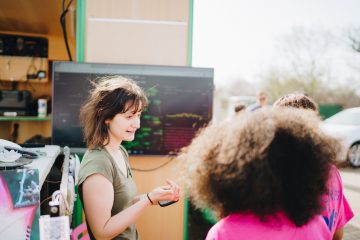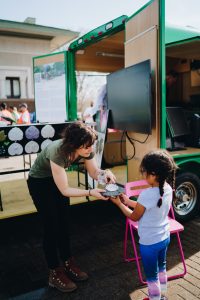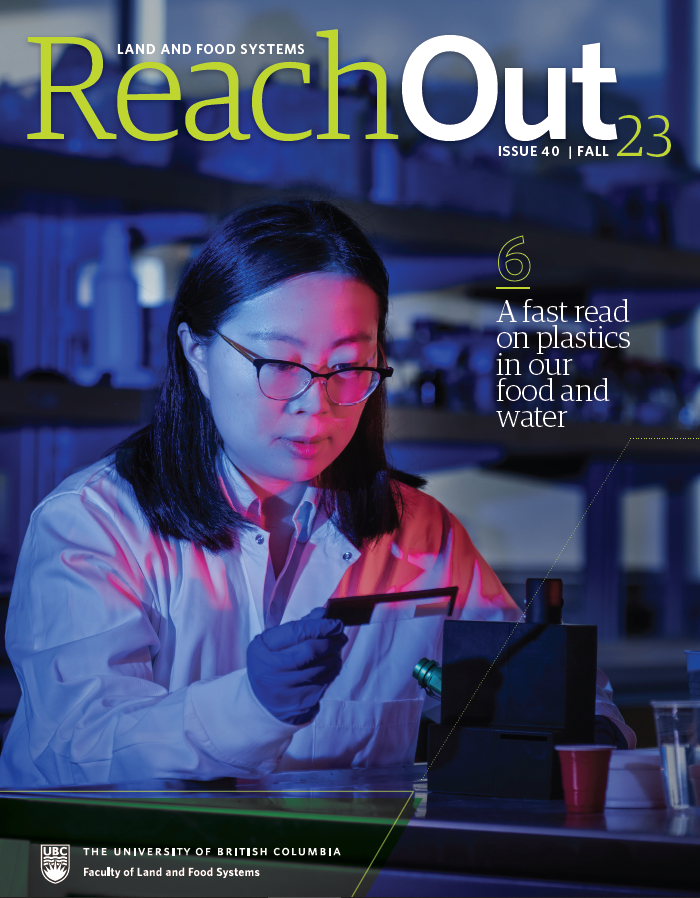Building Common Languages to Support Healthier Communities

Depending on the day, alumna Madeleine Daepp (MSc Integrated Studies in Land and Food Systems 2016) might find herself working with an atmospheric scientist, epidemiologist, computer scientist, or political scientist. She has developed an array of tools to address some of our most critical issues, which she uses in her unique role as a Senior Researcher at Microsoft Research in Seattle, WA.
Daepp earned her BA in Economics and Mathematics from Washington University in St. Louis, MO, where she conducted research on food accessibility across the city, and gained experience working on a food policy council and in a food bank. Her questions around food environments led her to meet Dr. Jennifer Black in LFS, and eventually, come to UBC for graduate school.
“When I found out about some of the work happening at Land and Food Systems, I got really excited about the potential to do research in this area with these top experts in a way that was really integrated across different aspects of the food system.”
For her master’s thesis at UBC, Daepp studied the effect of fast food restaurants on children’s school day diets. She found that the proximity of a fast food restaurant or convenience store had a minimal measurable effect on a child’s diet. One significant factor? Almost every school had one nearby which made it difficult to study variations.
While in LFS, Daepp also found herself collaborating with researchers across the food system, from bee biodiversity to dairy farms to the blueberry industry.
“This is a set of people who are committed to making positive change in the food system, but who are also thoughtful, empirically grounded, and trying to work with farmers, policy makers and schools.”
As a TA for one of the courses in the core series, Daepp experienced firsthand the range of students who wanted to address systemic issues from different perspectives – future veterinarians and dietitians, applied biologists and food scientists, to name a few.
Through her research on food accessibility and spending time in communities around Vancouver, Daepp became curious about how urban environments were designed and built.
“I started to get really interested in city policy as a key intervention and opportunity to improve people’s food environments, change how active they were, and to try to design cities that made people happy,” explains Daepp.
She continued this passion in her PhD studies in Urban and Regional Planning from MIT, where Daepp helped build an online mapping tool with resident researchers who were concerned about gentrification.
“There were different folks that I was working with and trying to leverage these big data sets to ask unconventional questions or try to shed light on new social problems.”

As a senior researcher in the Special Projects team at Microsoft Research, she continues forging multi-disciplinary collaborations, focusing on the use of novel data sources and technologies to promote health equity and foster climate adaptation in cities.
Daepp explains that while she has faced similar research problems throughout her career, the skills she has gained along the way have taught her to bridge gaps across different disciplines and sectors.
“Across all of that work, I would say I’m pretty methods agnostic and discipline agnostic. I’m really interested in problems – what is the big problem that children in the city are facing, how do I monitor that and come up with good mitigation strategies?” says Daepp. “I’ve really valued the
way that UBC set me up to collaborate across disciplines and build common languages.”
Tagged with: 2023, Alumni, Integrated Studies
